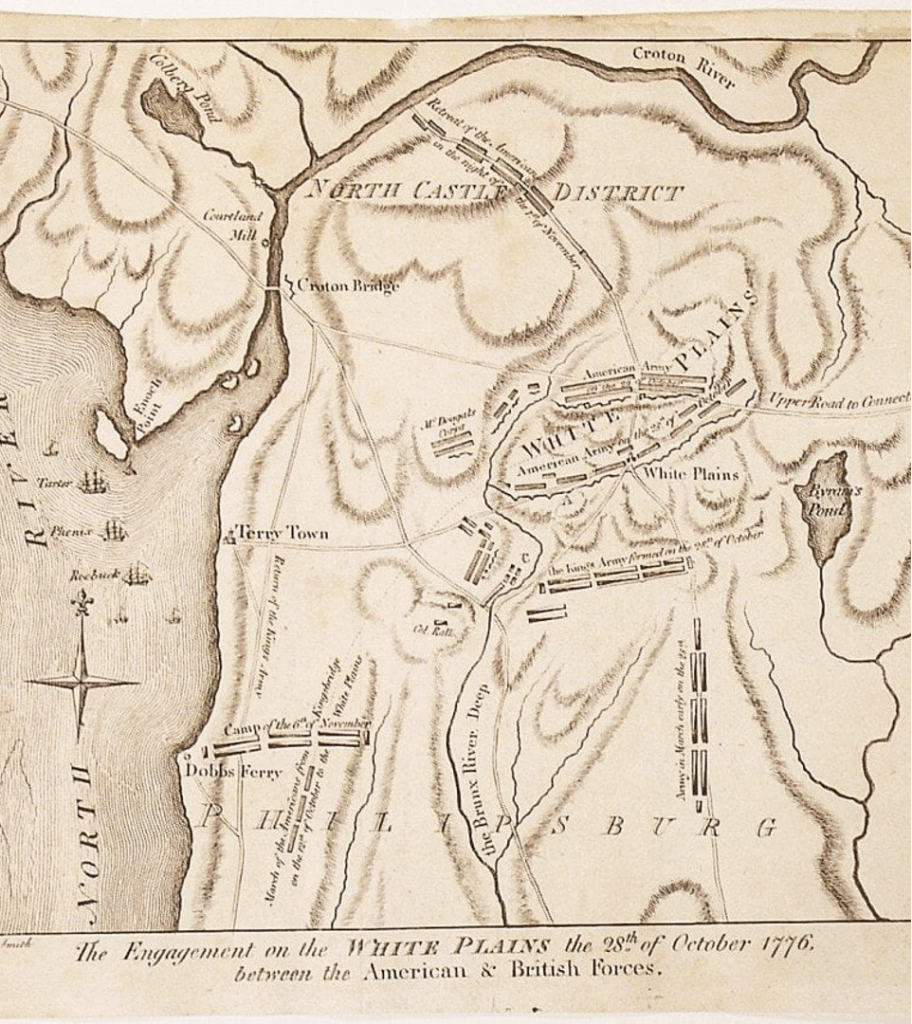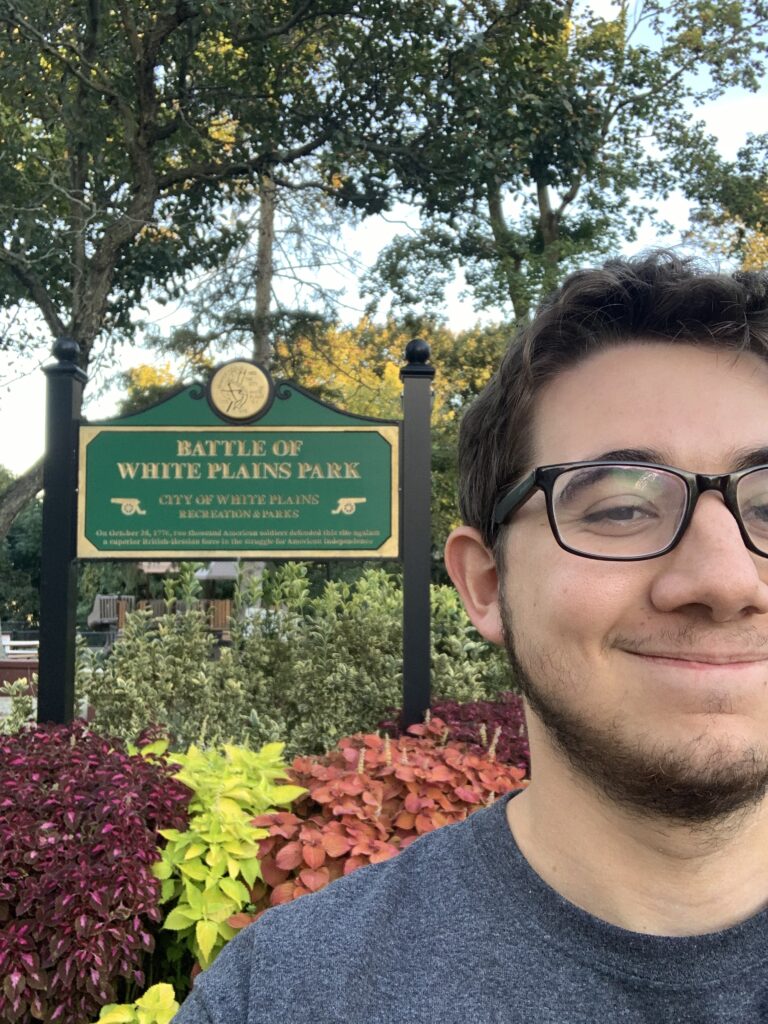Garret McDonald – History department PhD Candidate (Cohort 2017-18) working with Dr. Asif Siddiqi – is currently completing his dissertation, entitled: “The Delusion of Reform: Soviet Law, Forensic Psychiatry, and the Fate of Dissent after Stalin.” In this week’s From the Archives, Garret shares some of his experiences while researching at the Archives and Special Collections of University of Virginia’s Law School in Charlottesville.
What is your current research on?
My current research examines the intersection between law and medicine in the Soviet Union, focusing specifically on the issues surrounding social repression and involuntary psychiatric hospitalization. This topic is the basis of my doctoral dissertation as well as a drafted article I hope to submit to a peer-reviewed journal in the coming months.
What archive(s) did you visit and can you describe the archive a little?
The Covid-19 pandemic and the ongoing Russo-Ukrainian conflict necessitated more domestic research that I had originally envisioned. As a result, the majority of my research over the past year has been undertaken at the Hoover Institution on War, Revolution, and Peace at Stanford University. The repository at the Hoover, which includes nearly 12,000 microfilm reels of official Soviet state documents, is particularly invaluable since the collections are identical to those in Moscow. Most recently, however, I visited the Archives and Special Collections of University of Virginia’s Law School in Charlottesville. It is a very small operation, with only a single reading room. Their collections are quite large though, and housed off-site at the University’s various library storage spaces. The collections are primarily those which have been donated privately to the University.
What was the purpose of your trip? What type of documents did you plan to look at? What makes those documents interesting/unique/important for your research?
Over the course of researching and writing my dissertation, I discovered that several members of a United States delegation to the Soviet Union on the so-called “political abuse of psychiatry” (the practice of incarcerating dissidents and other social undesirables involuntarily in psychiatric hospitals) had donated originals and copies of all of their papers to the University of Virginia’s Law School collections. I originally intended to view these documents in the hopes of finding private correspondence, personal records of the delegation’s trips to the USSR, and information on Soviet reforms targeting involuntary psychiatric hospitalization in the 1980s.
I found all of that and much more, including information passed to the delegation from the Soviet government, individual Soviet psychiatrists, and local human rights activists.
The papers were significant because they contained copies of documents that are still classified in Russian archives today or are otherwise inaccessible. Like all historical documents, each came loaded with their own problems. For example, the papers contained statistics passed on to the American delegation by the Soviet government on precisely how many people were involuntarily hospitalized in the Soviet Union. The statistics, however, are not elucidated beyond a caption that reads “Number of Involuntarily Hospitalized Patients in the Special Psychiatric Hospitals.” It was left up to me to piece together from the prior correspondence whether or not this referred to all of the Special Psychiatric Hospitals or just those under the jurisdiction of the Ministry of Health (as opposed to those under the Ministry of Internal Affairs).
Further, I had to grapple with the very serious possibility that the Soviet government was actively lying to the U.S. delegation in their correspondence and being very selective in the information passed on. Regardless, the delegation actually got to be the first foreign visitors into otherwise deeply classified psychiatric facilities housing prisoners. These facilities are at the center of my dissertation, and the ability to get first-hand information on the inside of these facilities that was not from a former patient was truly invaluable.
What was the most exciting part of your archival trip?
The most exciting part of my trip was getting to meet some of the surviving members of the delegation. Most notably Richard Bonnie, who is a professor at the Law School. He was very patient with my numerous questions about the delegation’s activities and what he thought about the issue now with the benefit of hindsight. I also got to meet Lena Protsenko, a Ukrainian attorney who focuses on mental health. Lena is currently compiling another delegation member’s private papers for the University as well as a series of interviews she conducted with the members of the delegation and some former patients. I’m extremely grateful for the time and energy she so willingly spent to discuss my dissertation and the work she is doing. I am also very excited to return again soon to view those papers and interviews.
What was an average day in the archives like?
I have found that a day in the archives is pretty similar regardless of where you are. Whether I think back to my time in Russia’s state archives in Moscow, the Hoover Institution, or the recent trip to University of Virginia, the systems for getting and examining documents are relatively standardized. The big difference at the University of Virginia was the size. Massive collections were not manned by numerous archivists or spread across multiple reading rooms, instead there was really one archivist (with some support staff) and the one small reading room, which was quite comfortable. I felt really bad when I realized that the archivist, a lovely woman by the name of Cecila Brown, had carted over some 20 boxes of documents for me all by herself. Cecilia was as nice as could be though and always had a smile on her face.
The archive was open from 9am to 3pm. Each day I showed up at 8:55am to meet Cecilia at the door. She would let me into the reading room and cart out my boxes. Like most archives, I could only view one box at a time, so I generally sat there leafing through folders while taking notes and scans or photos of significant documents for the entire period. Occasionally, when Cecilia went to lunch I would head out to the University’s lawn to sit out with food, but most of the time I spent every second in the reading room combing through the thousands of pages I had requested. Writing this, I realize that sounds like a somewhat dreadful or dull experience, but anyone who is passionate about their topic will know that there are few things more exciting than examining new and unexpected documents in the archives.
Was there anything surprising you found in your research?
I was surprised that I found a series of patient files in the collections I viewed. Psychiatric patient files are notoriously difficult to access in the Russian Federation (and in most countries for more recent periods), and I was shocked to find copies here. That said, I did have to sign Non-Disclosure Agreements for each collection and have to navigate how to discuss files and cite them while not giving away any identifying information. The patient files I did find were especially interesting for their diversity. The delegation had unofficial patient files produced by dissident psychiatrists, they had official accounts given to them by Soviet authorities, and they had their own interviews and diagnoses of the patients they visited while in the USSR. Taken together, each is great for chronicling change-over-time and the various shifting approaches to questions of mental illness and criminality.
What advice would you give to someone interested in pursuing historical research?
I would advise someone interested in pursuing historical research to follow every lead. We all start with a question, or set of questions, that lead to even more questions more often than not. While trying to answer them you’ll come across so many different people, places, and organizations. Each represents a thread spreading out from and made up of your research interests. Follow each of them through to the end. Some will dead-end early, you will find out that a particular person left no papers behind or that an organization’s archives are still classified. Likewise, you will discover that places were destroyed in upheaval and conflict or that the archives you need are currently closed indefinitely. By following each lead you have though, you may also uncover that someone tangentially related to your topic did leave papers behind that may be useful or that your subjects had friends or relatives you can still get in touch with. You may even discover an archive or collection you didn’t even know existed. According to Cecila, I am the first researcher to ever examine those documents at the University of Virginia and the only reason I found them was because I followed my leads. I knew there was an American delegation, I had to track down the delegates, then their organizations, and finally what they left behind.
That amount of detective work may seem daunting, especially for a beginner or documents that may only comprise a fraction of your research. The delegation’s documents, for example, are only for the final chapter of my dissertation. We live in a world that is more connected and digitized than ever before though. All you have to do is put in the effort to look and reach out. There also is no shortage of kind, experienced scholars who would be delighted to help guide you or put you in touch with others who may be able to help.
From the Archives is a special series for the Fordham History blog which highlights the research experiences of members of the history department in an effort to both showcase their work and provide insight for future researchers preparing for their own archival projects.









